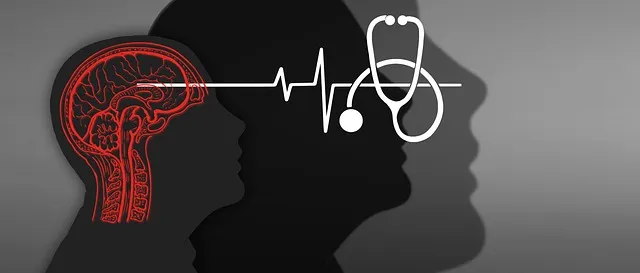Kaiser Permanente Boulder offers comprehensive cultural competency training programs that go beyond surface-level awareness. These interactive workshops, case studies, and role-playing scenarios equip healthcare workers with practical stress management techniques, emotional well-being promotion, and risk assessment strategies. The goal is to bridge cultural gaps, foster inclusive practices, and improve patient outcomes for diverse communities, ensuring all patients receive respectful, equitable, and culturally sensitive care.
Healthcare provider cultural competency training is a vital component of modern medical care, particularly in diverse communities like Boulder. This article explores Kaiser Permanente’s comprehensive approach to cultivating cultural sensitivity among healthcare providers through tailored training programs. We delve into their successful strategies, focusing on the design, implementation, and impact of these initiatives in the Boulder area. By examining Kaiser Permanente’s model, we aim to highlight effective ways to enhance cultural competency in local healthcare settings.
- Understanding Cultural Competency in Healthcare: The Kaiser Permanente Approach
- Designing Effective Training Programs for Healthcare Providers in Boulder
- Implementing and Measuring the Impact of Cultural Competency Training at Kaiser Permanente Boulder
Understanding Cultural Competency in Healthcare: The Kaiser Permanente Approach

Healthcare organizations worldwide are increasingly recognizing the importance of cultural competency in delivering quality patient care. Kaiser Permanente, a renowned healthcare provider based in Boulder, has pioneered comprehensive training programs that foster this essential skill set. Their approach focuses on not just understanding diverse cultural backgrounds but also cultivating compassion and inner strength among healthcare workers.
The Kaiser Permanente training emphasizes practical strategies for stress management, enabling staff to navigate complex patient interactions with resilience. These programs are meticulously designed to bridge the gap between different cultural perspectives and medical practices, ensuring that patients from various ethnic, racial, and socio-economic backgrounds receive respectful, equitable, and culturally sensitive care.
Designing Effective Training Programs for Healthcare Providers in Boulder

In Boulder, healthcare provider cultural competency training is a vital aspect of delivering quality care to a diverse population. Programs like those offered by Kaiser Permanente play a crucial role in fostering an inclusive environment and ensuring effective communication between providers and patients from various backgrounds. Effective training should go beyond surface-level awareness, delving into nuanced topics such as unconscious bias, microaggressions, and cultural idioms to promote genuine understanding and empathy.
Designed with a focus on practical application, these programs can incorporate interactive workshops, case studies, and role-playing scenarios to engage participants actively in the learning process. Additionally, addressing burnout prevention and emotional well-being promotion techniques is essential, as mental health professionals face unique challenges in navigating complex patient interactions. Incorporating risk assessment strategies for mental health professionals further strengthens these training programs, enabling healthcare providers to recognize and manage their own emotional needs while caring for others.
Implementing and Measuring the Impact of Cultural Competency Training at Kaiser Permanente Boulder

At Kaiser Permanente Boulder, implementing cultural competency training has been a cornerstone of their commitment to delivering exceptional patient care. Their comprehensive programs aim to educate healthcare providers on navigating diverse cultural backgrounds and promoting inclusive practices. Through interactive workshops, simulations, and ongoing mentorship, these training sessions empower medical staff to foster strong patient-provider relationships across different ethnic, racial, and socio-economic groups.
The impact of these initiatives is meticulously measured through regular feedback surveys and outcome analyses. By evaluating participant experiences and tracking improvements in clinical care, Kaiser Permanente Boulder ensures that their cultural competency training programs effectively contribute to enhanced healthcare outcomes. This data-driven approach not only strengthens the organization’s dedication to equity but also inspires continuous improvement in mental wellness coaching and positive thinking among healthcare providers, ultimately benefiting the diverse communities they serve.
Cultural competency training, as exemplified by Kaiser Permanente’s approach and implemented successfully in their Boulder training programs, is a transformative tool for healthcare providers. By fostering understanding and empathy across diverse cultural backgrounds, these initiatives ensure equitable care delivery. The measurable impact at Kaiser Permanente Boulder underscores the value of investing in such programs, potentially leading to improved patient outcomes and enhanced healthcare experiences for all individuals served.






